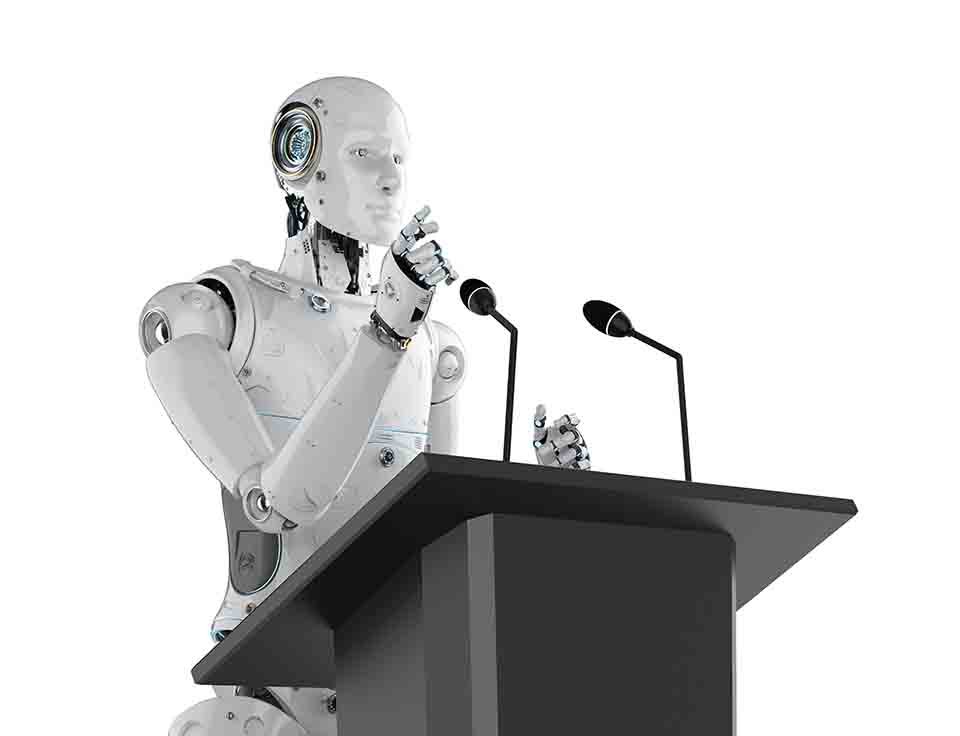Introduction to Debate in Education
Debate, a formal method of interactive and representational argument, has long been a cornerstone of educational systems worldwide. Historically, Socratic dialogue and medieval disputations underline the rich legacy of debate in fostering intellectual rigor and discourse. In the contemporary educational sphere, debate assumes various forms, including parliamentary, policy, and Lincoln-Douglas formats, each tailored to different pedagogical objectives and levels of complexity.
In classrooms today, debate serves as an active learning strategy designed to engage students dynamically. Unlike traditional rote learning, debate encourages learners to delve deeper into topics, analyze different viewpoints, and articulate their thoughts coherently. This method proves particularly effective in developing critical thinking skills, as students must evaluate arguments, question assumptions, and synthesize information from diverse sources.
Communication skills are also significantly enhanced through debating. Students learn to present their ideas clearly and persuasively, listen actively to opposing views, and respond thoughtfully. These interactions cultivate an environment of respect and intellectual humility, where differing opinions are valued and constructive dialogue is encouraged.
Moreover, debate facilitates collaboration, an essential skill in the modern workplace and society. Preparing for a debate often involves teamwork, as students must collaborate to research evidence, develop strategies, and practice their arguments. This collaborative effort not only bolsters individual learning but also builds interpersonal skills and a sense of community among peers.
The educational benefits of debate extend beyond immediate academic performance. By engaging in debates, students acquire lifelong learning skills, such as analytical thinking, effective communication, and cooperative problem-solving. These competencies are critical in navigating the complexities of today’s world, making debate an indispensable tool in education. As we explore the multifaceted role of debate in fostering these lifelong skills, it becomes clear that its integration into educational curricula is both relevant and necessary.
Research Skills Enhancement
Debate is an invaluable tool in developing students’ research skills, a critical aptitude in both academic and professional environments. Engaging in debate requires participants to delve deeply into various topics, often outside their immediate knowledge base. This pushes students to identify credible sources, a foundational skill in research. Learning to distinguish between reliable and unreliable information fosters a discerning approach essential in the digital age, where the line between fact and misinformation can often blur.
The process of analyzing information comes next. Students must scrutinize the data they collect, understanding different perspectives and the underlying evidence. This analytical process enhances critical thinking, allowing students to identify biases and logical inconsistencies. With a thorough analysis, debaters can then synthesize their findings, weaving together diverse pieces of information to construct cogent and compelling arguments. This synthesis involves not only combining data but also framing it within the context of the debate, ensuring each piece supports their overall position.
These research skills have extensive applicability beyond debate. For instance, in academic settings, the ability to source, evaluate, and integrate information is crucial for writing papers and conducting experiments. Professionally, these skills are essential for tasks such as market analysis, project development, and strategic planning. The discipline cultivated through debate, in terms of systematically approaching research, ensures that students are well-equipped to tackle complex problems across various domains.
Moreover, this continuous practice of research enriches students’ breadth of knowledge and sharpens their intellectual agility. They become adept at not only gathering information but also fostering a deeper understanding of diverse subjects, ultimately nurturing a lifelong passion for learning and inquiry. The iterative nature of debate ensures that students are constantly refining their research techniques, promoting a culture of continuous improvement and intellectual rigor.
Debate serves as a powerful tool in the educational landscape by stimulating critical thinking among students. When engaging in debate, students are tasked with evaluating not only their own arguments but also those presented by their opponents. This process necessitates a deep dive into the structure of arguments, fostering an ability to identify logical fallacies, biases, and various weaknesses. Such scrutiny equips students with analytical skills that are indispensable for academic success and beyond.
One crucial aspect of debate is the requirement to defend a position with evidence and logical reasoning. This demands that students engage in thorough research, enhancing their ability to sift through information critically. As they prepare their cases, they must discern credible sources from unreliable ones, a skill that is increasingly important in our information-saturated world. Moreover, students learn to construct and deconstruct arguments, a practice that sharpens their analytical prowess.
The identification of logical fallacies is another fundamental aspect of critical thinking developed through debate. By recognizing errors in reasoning, students become adept at avoiding such pitfalls in their own arguments and can more effectively challenge the arguments of others. This skill has broad applications, from academic writing to personal decision-making and professional scenarios where logical analysis is paramount.
Beyond the confines of the debate room, the critical thinking abilities honed through debate have significant real-life applications. In everyday situations, these skills assist individuals in addressing complex problems, making informed decisions, and evaluating the validity of information they encounter. For instance, evaluating marketing claims or navigating workplace challenges often requires a critical approach, a competency nurtured through regular debate practice.
In essence, debate not only refines students’ capabilities to argue convincingly but also instills a mindset geared towards critical analysis and thoughtful scrutiny. These attributes are foundational to lifelong learning and effective problem-solving, making debate an invaluable component of education.
Improvement in Public Speaking Skills
Debate plays a pivotal role in honing public speaking skills, which are essential for personal and professional development. Through engagement in structured debate activities, students develop the ability to articulate their thoughts clearly and confidently. A key component of effective public speaking is the clarity of expression, a skill that debate practices regularly cultivate. Students learn to convey complex ideas succinctly, ensuring their messages are both understood and impactful.
Another critical element that debate enhances is the use of persuasive language. Debaters must present compelling arguments backed by evidence, requiring them to employ persuasive techniques that appeal to ethos, pathos, and logos. This practice trains students to influence their audience’s perception and fosters an ability to present convincing narratives across various contexts, whether in academic discourse or professional environments.
Effective rhetoric is also refined through debate. The structured nature of debate requires students to strategically organize their speeches, making deliberate choices about language, tone, and style to maximize impact. This rigorous training in rhetorical techniques helps students become more adaptable speakers, capable of engaging diverse audiences in different settings.
Mastering public speaking through debate confers numerous benefits beyond the debating arena itself. In academic settings, students find themselves better prepared for presentations and discussions, equipped with the confidence and clarity needed to excel. For job seekers, strong public speaking skills can be a decisive factor in successful interviews, where clear communication and persuasive storytelling significantly enhance employability. Additionally, these skills are invaluable in public forums, enabling individuals to participate actively in civic discussions, community meetings, and public advocacy.
Altogether, debate serves as an excellent training ground for students to improve public speaking skills that are vital for lifelong success. By committing to the rigorous practice of debate, students not only sharpen their ability to express ideas effectively but also build a foundation for continued personal and professional growth.
Fostering Collaborative Problem-Solving
Debate inherently promotes collaborative problem-solving, a crucial skill in both academic and professional settings. When students participate in debates, they don’t simply voice their individual opinions. Instead, they work as a cohesive unit to present well-structured, persuasive arguments. This process of joint effort builds essential teamwork capabilities.
In a debate setting, students must engage in comprehensive research and share their findings with team members. This encourages a harmonious exchange of ideas and critical evaluation of different viewpoints. The act of collaboratively developing strategies teaches students how to synthesize diverse perspectives into a unified argument. This synthesis not only enriches their understanding of the subject matter but also hones their ability to navigate complex discussions effectively.
Moreover, the coordination required in debate teams mirrors real-world scenarios, where professionals must frequently work together to solve multifaceted problems. Collaborative debate exercises teach students to distribute roles effectively based on individual strengths, practice active listening, and engage in constructive feedback. These skills are directly transferable to group projects and professional environments, making students more adaptable and proficient team members.
For instance, during a debate preparation, students might be divided into sub-groups, each focusing on specific aspects of the argument – such as benefit analysis, counter-argument rebuttals, and evidence collection. This division of labor ensures that each team member contributes to the final presentation, fostering a sense of collective responsibility and shared achievement.
Ultimately, the collaborative skills honed through debate activities prepare students to tackle group tasks with enhanced efficiency and creativity. The experience of working towards a common goal within the debate framework equips them with the necessary tools to excel in various collaborative settings, from classroom projects to professional teams.
Cultivating Empathy and Understanding
Participating in debates provides students with a unique platform to encounter a multitude of perspectives and ideas. This exercise in diversity is essential for nurturing empathy and understanding. Engaging with differing viewpoints compels students to step outside their own experiences and consider the rationale behind opposing arguments. Through this process, learners begin to appreciate the complexity inherent in various issues and develop a more nuanced understanding of the world around them.
Empathy is cultivated as students are required to understand and articulate positions that may be contrary to their own beliefs. This practice of “walking in another’s shoes” is instrumental in fostering emotional intelligence and compassion. When students recognize the validity of another person’s point of view, even if they disagree, they build a foundation for respectful and constructive dialogue. This ability to engage in meaningful conversation without resorting to hostility or dismissiveness is crucial in both academic settings and broader societal interactions.
Moreover, debating teaches students to listen actively and critically. They learn to analyze arguments for their merits and weaknesses, which enhances their problem-solving skills. By weighing different perspectives, students are better equipped to arrive at well-rounded conclusions and make informed decisions. This critical thinking ability is not only beneficial in resolving complex issues but also in everyday interpersonal interactions.
In addition to individual growth, the skills honed through debate contribute to a more inclusive and tolerant society. By understanding and empathizing with diverse viewpoints, students become advocates for inclusivity and equity. The debate format encourages a culture of respect and open-mindedness, essential qualities for community building and effective collaboration.
Ultimately, the empathy and understanding garnered through debating are indispensable in our increasingly interconnected world. These skills enable individuals to bridge divides, foster mutual respect, and contribute positively to a more tolerant and inclusive society.
Encouraging Lifelong Learning
Debate serves as a powerful tool in nurturing a passion for learning and fostering intellectual curiosity among students. This disciplined activity compels participants to engage in rigorous research, ensure they are well-informed about various topics, and critically analyze information from multiple perspectives. Through the process of debate, students are regularly exposed to new ideas and perspectives that challenge their preconceptions, thereby stimulating their inherent curiosity and desire for knowledge.
One of the key elements of debate is the necessity for thorough preparation. Students must continually update their knowledge base, stay current with global issues, and deepen their understanding of complex subjects. This consistent practice of research and information synthesis not only enhances their expertise in specific areas but also cultivates a habit of continuous learning. By encouraging students to be perpetual learners, debate instills the importance of being well-versed in a wide range of disciplines, thus promoting intellectual versatility.
Furthermore, debate entails a high level of critical thinking and public discourse. Participants must construct coherent arguments, anticipate counterarguments, and present their viewpoints persuasively. This process refines their analytical skills and enhances their ability to evaluate the validity and relevance of information. Engaging in such dynamic discourse prepares students to better navigate the multifaceted world, equipping them with the tools to approach problems innovatively and make informed decisions.
The benefits of fostering a lifelong learning mindset through debate are particularly significant in our rapidly evolving world. As technological advancements and societal changes continuously reshape the landscape, the ability to adapt and stay informed becomes crucial. Students who embrace lifelong learning are better prepared to face new challenges, seize opportunities, and thrive regardless of the domain they choose to pursue. Engaging continuously with the learning process ensures that they remain competitive and resilient in an ever-changing environment.
Conclusion: The Lasting Impact of Debate
The role of debate in education extends far beyond the confines of the classroom, imparting a diverse set of skills that benefit students in numerous ways throughout their lives. Participation in debate hones critical thinking and improves communication skills, allowing students to articulate their ideas clearly and persuasively. These capabilities are vital not just academically but also in professional and personal contexts.
Moreover, debate encourages a deeper understanding of diverse perspectives by requiring students to consider and counter opposing viewpoints. This exposure fosters empathy and cultural awareness, essential traits in our increasingly interconnected world. Additionally, the structured nature of debate teaches students the importance of research, evidence, and logical reasoning, equipping them with robust problem-solving abilities. These skills are transferable to any career, from law and politics to business and STEM fields, making debate an invaluable educational tool.
Given the myriad benefits, it is imperative that educators and institutions incorporate debate more extensively into their curricula. By doing so, they can ensure that students develop the critical skills required to navigate the complexities of modern life and emerge as informed, articulate, and engaged members of society.




